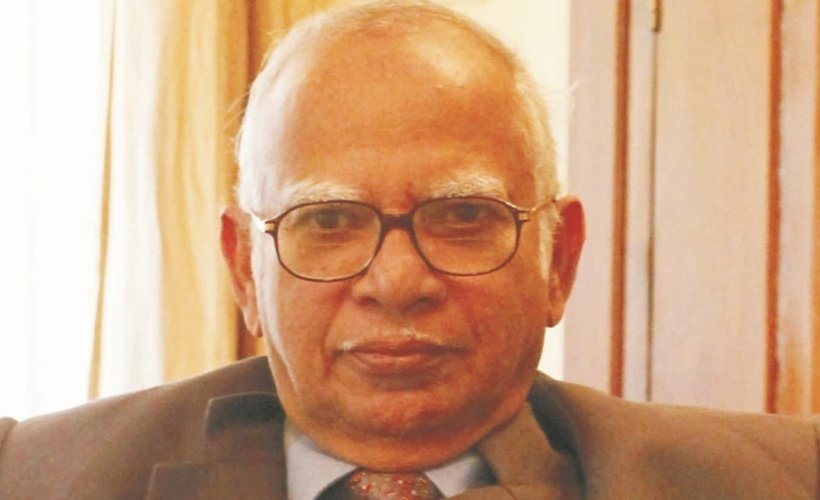
V. B. PRABHU VERLEKAR clarifies some important queries to aid those wishing to apply for Portuguese Citizenship
For English speaking Goans, acquiring Portuguese citizenship was a gateway to work in the United Kingdom to improve their economic conditions.
All those who were born in the erstwhile Portuguese colonies of Goa, Daman and Diu, and Dadra and Nagar Haveli before 19th December 1961, and their descendants up to three generations can get a Portuguese passport. To establish lineage, one has to register the birth in Portugal as a Portuguese citizen with proper birth certificate to enable one’s children to acquire a Portuguese passport which in turn will enable them to move to UK or settle in any country forming part of the European Union for gainful employment. With the exit of Britain from the European Union (Brexit), the Portuguese nationals can stay in U.K upto six months, but need to have a resident visa thereafter.
It is estimated that more than 2 lakh people of Goan origin have acquired Portuguese citizenship; most of them work in U.K. These immigrant Goans who are generally not professionally qualified, opt for low skilled jobs in stores, hospitality industry, airports, driving, cleaning, housekeeping etc. and work in very harsh and tough conditions. With minimum hourly wage rate of £10.42, with 8 hours duty for 25 working days, they earn around £2100 per month.
However, everyone is not lucky to get 8 hours daily work. They live mostly in shared accommodation costing £300 – 500, cook food at home and on Sundays some of them have food at the Gurudwara langar. Metro transport costs £6 for a return tripper day, after insurance recovery by employers they manage to save about £500-600 per month equivalent to INR 50,000 to Rs. 60,000. The job market in U.K has lately become tough and challenging and since last year, and the Ukraine war has made significant dent in their income due to high cost of living. At the back of their mind, they dream to return to their village after sufficient savings and build a home. Their lifestyle is totally different from those Goans who have migrated to U.K from the former British colonies in East Africa and professionals, businessmen, and students living in UK.
In order to provide clarity to those Goans who have migrated or intend to migrate with Portuguese citizenship, I have tried to answer the below queries that they normally have in mind to avoid anxieties.
1. I am a Goa government employee. I have registered my birth in Portugal to enable my children to obtain Portuguese citizenship. Will I be considered as a Portuguese national and my service terminated?
Ans: No. You continue to be an Indian National for so long as you do not acquire a passport of another country, including Portugal. This has been clarified in Section 9(2) of the Indian Citizenship Act, 1955 read with Rule 40 of the Citizenship Rules and Schedule III, thereunder.
2. If I acquire a Portuguese passport, is it compulsory to leave India?
Ans: Yes. However, under section 7A of the Citizenship Act 1955, you are eligible to obtain the Overseas Citizen of India (OCI) card, which entitles you to get life-long entry visa to India without registering with the local police authorities. Till such time as you obtain OCI card status, you need to have Indian visa to stay and register with the Foreigners Registration Officer (FRO).
3. Who is eligible to apply for registration as OCI card holder?
Ans: As per Section 7A of the Citizenship Act 1955, a foreign national who is a citizen of another country, but belongs to a territory that become part of India after 15th August 1947, is eligible for registration as Overseas Citizen of India (OCI) card holder. Since, Goa along with Daman and Diu became part of India with effect from 19th December 1961, any person of Goan origin who has taken citizenship of another country, including Portugal, is eligible for registration as an OCI card holder.
4. What are the benefits to an OCI card holder?
Ans: The important benefits include (a) Lifelong entry visa with exemption from registration with the Foreigners Registration Officer (FRO) (b) Purchase or sale of immovable property other than agricultural land and plantation property and inheritance is allowed (c) Pursuing professions such as doctors, dentists, nurses and pharmacists, advocates, architects and chartered accountants (d) Eligible for appointment as teaching faculty in Indian Institute of Technology (IITs), National Institute of Technology (NITs), Indian Institute of Management (IIMs), Indian Institute of Science Education and Research (IISERs), Indian Institute of Science (IISC), central universities and in the new All India Institute of Medical Sciences (AIIMS) set up under the Pradhan Mantri Swasthya Suraksha Yojana (PMSSY).
5. What are the benefits which an OCI card holder is not entitled to?
Ans: Goan OCI card holders (others too) are neither eligible to vote nor contest in any election to the Goa Legislative Assembly or the Central Parliament or even to municipal or panchayat elections in Goa. Likewise, they cannot hold any job under a government or government undertaking, company and corporation. .
6. Should OCI card holders living in India have valid passports?
Ans: Yes. Passport is the primary travel document and OCI is only a lifelong visa. Hence, stay of a foreigner in India without a valid passport is illegal even if he/she is an OCI card holder. Therefore, it is necessary that OCI card holders staying in India should have valid passport of the country of which he/she is a national at all times of his/her stay in the country.
7. How many days can I stay in India without disturbing my non-resident status for income tax?
Ans: During a financial year (April to March) your total stay in India should not exceed 181 days.
8. What is the status of investment made while in India?
Ans: OCIs, who are non-resident in India, are not permitted to make investments in any saving schemes like National Saving Certificate, Postal deposits, Public Provident Fund (PPF) etc, but if they have invested earlier, they can continue to hold till maturity.
9. I have saving account and fixed deposit in banks in India. What should I do?
Ans: Under the Foreign Exchange Management Act (FEMA), a non-resident cannot maintain a resident saving bank account or a fixed deposit in India. He/she should designate the existing bank accounts as ‘Non- Resident Ordinary’ (NRO). Interest earned on this account is taxable and TDS is 30% irrespective of the interest amount. Any income earned in India can be deposited in this account.
10. I am holding a PAN in India. I hold a Non -Residential External (NRE) fixed deposit from which I get over `10 lakhs. My other income in India is nominal. Will I be required to file tax returns in India?
Ans: An OCI or Non-Resident India (NRI) holding PAN need not file income tax return if his income is below taxable limits which at present raised to `3 lakhs. This does not include NRE fixed deposits which is exempted from income tax. However, to claim income tax refund, filing of tax return is necessary.
11. Are OCI card holders required to obtain Aadhar number to link their bank accounts in India?
Ans: No. OCIs who are non-resident in India, are exempted from linking their account with an Aadhar card. However, those holding an OCI card and permanently residing in India may enrol themselves under the Aadhar/ Unique Identification Number (UID) Scheme by producing documents of proof of identity, proof of residence and date of birth.
12. I have returned to Goa being disillusioned with the working and living conditions in UK. Can I now get back my Indian Citizenship?
Ans: Yes. A person registered as an OCI card holder for 5 years and is an ordinary resident in India for 12 months. is eligible to apply for grant of Indian citizenship under Sec. 5(1)(g) of the Citizenship Act, 1955.





